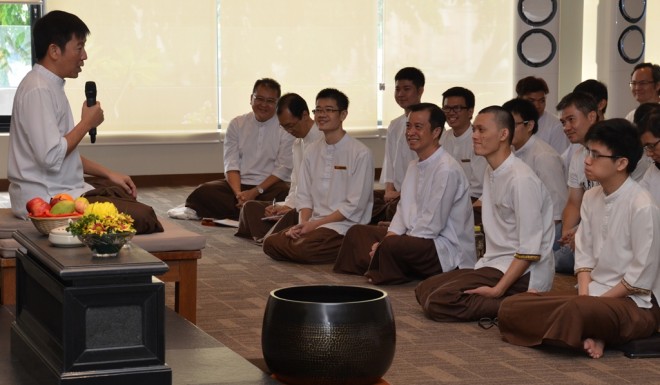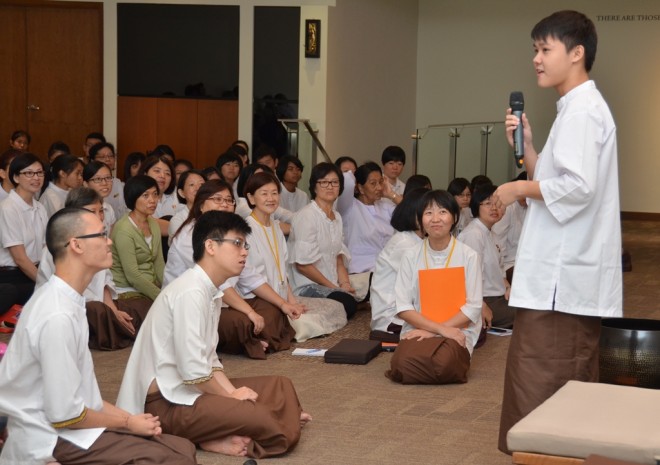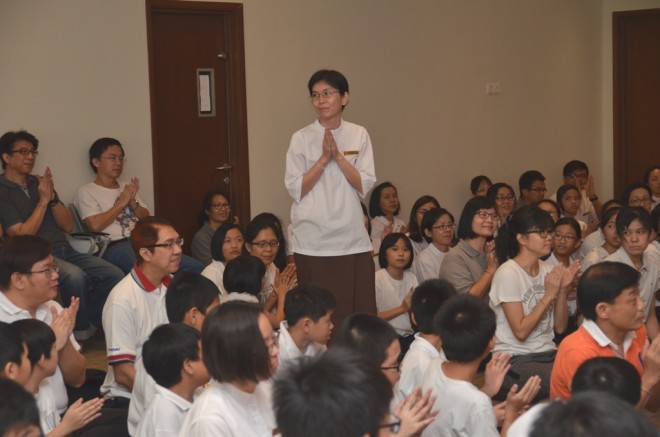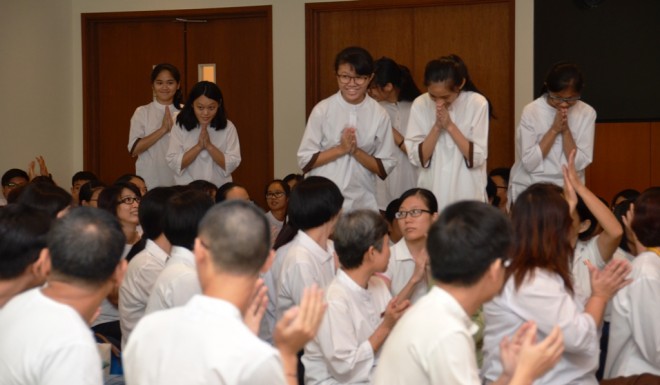Big ‘thank you’ to Wesak volunteers
Big ‘thank you’ to Wesak volunteers

Bro. Tan urge Nalandians to develop the qualities of ‘Metta’, ‘Karuna’, ‘Mudita’ and ‘Upekkha’ to lead a happy life.
On Sunday 29 May, Nalandians gathered to observe Nalanda’s monthly Samaggi Day. It was also the ideal opportunity for the Society’s Management to acknowledge and thank the volunteers who had worked tirelessly before, during and after the recent Buddha Day celebrations.
Preparation work for Wesak had started a month preceding Buddha Day. Volunteers had been streaming in and out of Nalanda Centre to prepare for the 3-day Wesak celebrations. Everyone had worked together harmoniously and mindfully in the spirit of Samaggi to ensure the success of the Buddha Day Observance.
Following the appreciation session, Nalanda founder Bro. Tan gave a Dhamma talk reminding Nalandians that, besides appreciating the effort which had gone into the success of the Buddha Day celebrations, we need to also reflect and be grateful for the opportunity to do those good deeds. Gratitude fuels our sense of happiness without boosting our sense of ego. It fills us with humility.
We can live a happy life if we cultivate the qualities of kindness (mettā), compassion (karunā), empathetic joy (muditā) and equanimity (upekkhā), collectively known as Brahma-viharā. Mettā is the loving-kindness that we have for oneself and others for their well-being and happiness; Karunā is the compassion that we wish for others to be free from suffering; Muditā is the sympathetic joy we feel for goodness and achievements of others; while Upekkhā is equanimity, the sense of calmness within which is not affected by gain or loss. If we imbue ourselves with these qualities, there will be clarity in our minds, which will lead us to peace, happiness and wisdom.
We thank Bro. Tan for the delightful sharing to guide us on our path of personal transformation and happiness. Sadhu anumodana!




